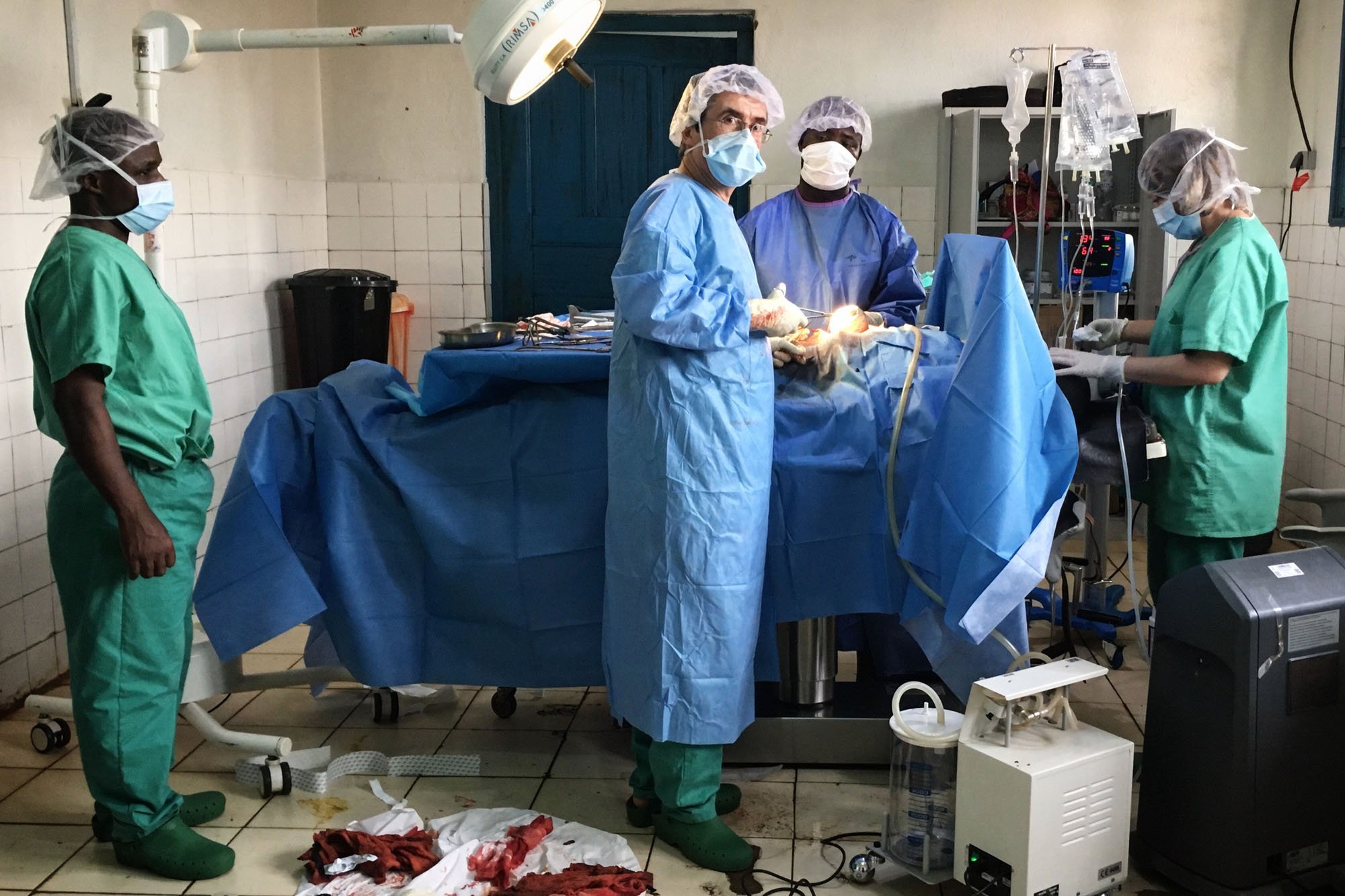Civilians pay the price of renewed, brutal fighting in the Central African Republic

Apr 12, 2017
In the past weeks MSF teams have witnessed summary executions and terror among civilians
As conflict spreads and intensifies in the Central African Republic (CAR), dozens of civilians are being killed and wounded. Thousands are being forced to flee for their lives and are receiving little to no humanitarian assistance, Doctors Without Borders/Médecins Sans Frontières (MSF) warned today.
“Our teams have witnessed summary executions and have found mutilated bodies left exposed to terrorise populations. Civilians are traumatised and many have fled to the bush where they are surviving on whatever they can find”, says René Colgo, MSF’s deputy head of mission. He has been leading the team providing medical care in the areas of Bakouma and Nzako since 26 March.
In the past few months, in-fighting among parties from the 2014–2015 conflict has resulted in splinter groups and has triggered a conflict for control of territory and resources, especially in the centre and east of the country (Ouaka, Haute Kotto, Basse Kotto and Mbomou prefectures). When cities change hands, civilians are the first to suffer. In Bria paediatric hospital, for example, MSF teams have treated 168 people for violence-related injuries since November.
“During the weekend of 24 to 26 March our paediatric ward received around 24 badly injured people. Among them was a three-year-old girl who had a gunshot wound. It was chaos, and I remember having to leave one wounded man because I needed to urgently focus on another who just arrived with his intestines hanging out. We had limited technical equipment, but our surgeon managed to save his life”, says Dr Katie Treble, who was working for MSF in Bria hospital at the time.
The conflict is spreading to areas that had been considered relatively stable for the past two years. In Bakouma and Nzako (Mbomou province), towns and mining areas are being contested by rival armed groups, with devastating consequences for the civilian population.
“What was already one of the most acute humanitarian crises in the world is worsening. The Central African Republic is spiralling into levels of violence that have not seen since the peak of the conflict in 2014”, says Emmanuel Lampaert, MSF’s representative in CAR.
In recent months there has also been an increase in the number of targeted attacks by armed groups against specific communities, which in turn leads to retaliation and a quick escalation of violence. “The nature of the conflict is evolving and traumatised and helpless civilians find themselves trapped in the crossfire, kicked out of their homes, and cut-off from their fields and livelihoods. At the very least all parties need to stop attacking non-combatants and allow a minimum of assistance to reach those in desperate need”, says Caroline Ducarme, head of mission in CAR.





Leave a Comment